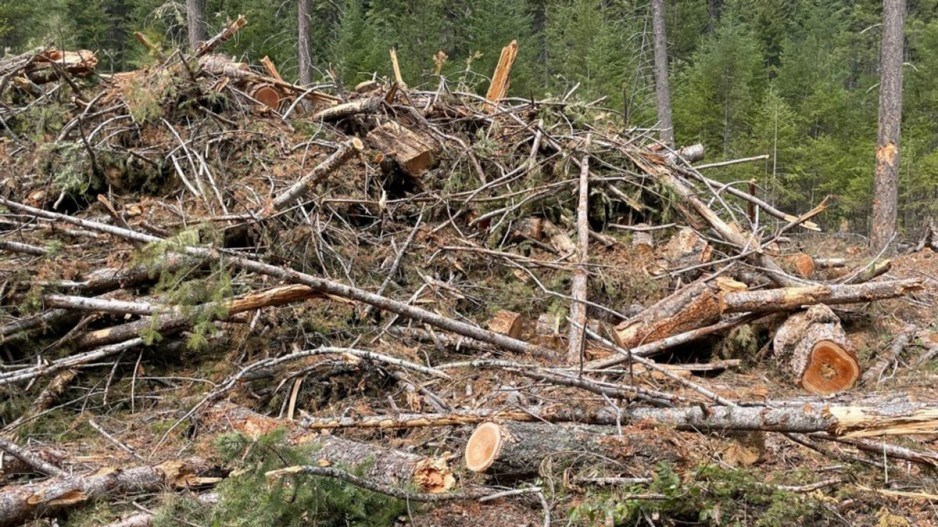Prince George-based Conservation North is supporting Bulkley Valley Clean Air Now’s call for the provincial government to shut down Drax Canada’s pellet mill in Smithers.
The groups say that the original proponent for the mill, NewPro, misled the public, Smithers town council and B.C. government about key aspects of their operation. NewPro sold the mill, which opened in 2018, to Pinnacle Renewable Energy, which was later purchased by the U.K.-based Drax Group.
The groups say that NewPro claimed the pellet mill would dramatically reduce the smoke associated with slash burning, because slash material would be used to make pellets.
“Despite the company’s assertions, the slash burning continues and our airshed continues to be choked with smoke for months on end. Instead of chewing through slash, the local pellet mill is chewing through whole logs,” said Len Vanderstar, co-founder of Bulkley Valley Clean Air Now, in a statement issued by the groups on Friday. “Such logs have never been considered to be ‘logging slash’ before.”
Pulp-grade (Grade 4) logs can be stacked in the pellet mill’s yard, Vanderstar added.
The groups are calling on the province to suspend Drax Canada’s permit for the Smithers mill and require the company to disclose the number of logs it uses.
“We are losing on so many fronts, not just with this pellet mill but others in BC. Contrary to claims that they use ‘residual’ wood including logging slash and sawmill waste, pellet makers like Drax use hundreds of thousands of logs per year,” Conservation North director Michelle Connolly said in a statement issed Friday. “Those logs all come from BC’s rapidly disappearing primary forests, which partly explains why we are in the ecological crisis we are.”
Drax Canada did not respond to a request for comment as of Tuesday at 4 p.m.




